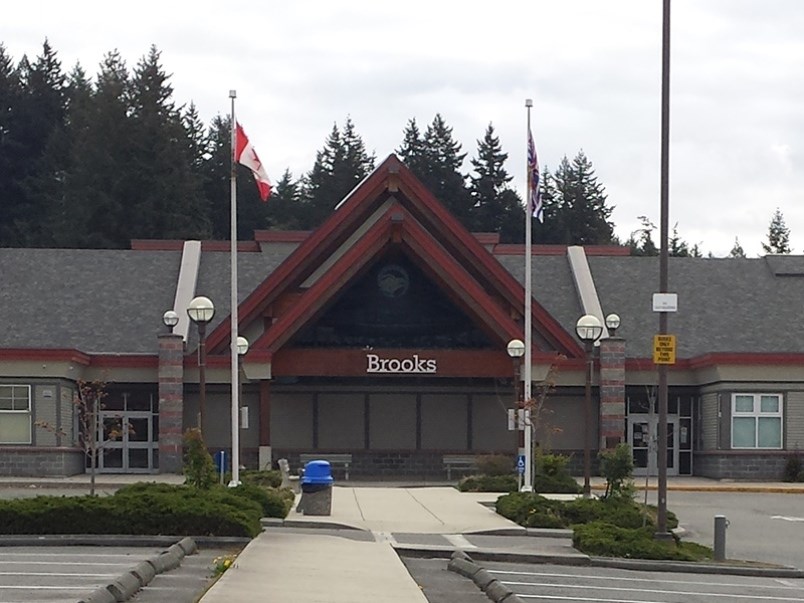School District 47 has put mechanisms in place to ensure qathet region schools are a safe and accommodating environment for people of all sexual orientations, gender identity or gender expression.
Following a joint statement by many education-related individuals and organizations on sexual orientation and gender identity (SOGI), Allison Burt, School District 47 director of instruction, and Willow Dunlop, district lead for SOGI, were interviewed by the Peak about SOGI initiatives in local schools.
The school district joined BC’s SOGI educator network in 2018. Now, every school district in the province is part of the network as well as a number of private schools.
“It’s a provincial network that helps educators in schools be SOGI inclusive,” said Burt. “I’m the district administrator, Willow is the district lead, and then we have representatives at each school who promote SOGI-inclusive practices, support and resources.
“We all work together to help build the capacity of everybody in our school district. We often have more than one interested school staff member wanting to participate as a lead, which shows high interest.”
Burt reinforced that SOGI is not a curriculum or a program, it is a way of being.
“We don’t discriminate against people of different religions, races or abilities, and it’s the same with gender identity; we want to be inclusive of all sexual orientations and gender identities,” added Burt. “Some people think SOGI is a curriculum, but that is not the case. We are here trying to support all people.”
Burt said when the BC Human Rights Code was changed in 2016, that prompted schools to do more work in the area of SOGI. She said in 2016, the code was changed to include gender identity and gender expression.
“All of our schools updated our codes of conduct, which was a provincial requirement, to make sure the district codes reflected the human rights code,” said Burt. “SOGI stands for what we do.”
An important part of SOGI is the policy, so the school district makes sure it has all policies and procedures supporting inclusive environments. A second part is the learning environment. Dunlop said it includes making sure schools are welcoming visually.
This includes features such as having signs in classrooms indicating that everyone is welcome. It might also include removal of resources in libraries that are outdated or use outdated language, according to Dunlop.
In terms of resources, efforts are made to ensure physical spaces are supportive of all genders and that can include things such as universal washrooms. Dunlop said most schools have signage that indicates a washroom is for everyone.
“At every school site, there is at least one,” added Dunlop.
“We are just ensuring that students who are not fitting within a gender binary are accepted and supported to have a comfortable learning environment.”
Providing opportunities
Burt said teachers help to find ways for all students to see themselves in the curriculum.
“It’s important for teachers to provide resources for students that provide windows and mirrors,” added Burt. “It’s important for students to learn about people who are different from themselves, because diversity plays a big part of living in today’s society. We need to be able to provide those windows of opportunity into other peoples’ experiences.
“It’s equally important to have mirrors and chances for students to see themselves and their families reflected. A lot of families aren’t mom and dad. It could be two moms, two dads, it could be single parents or maybe a grandparent.”
Dunlop said within the last year, the school district provided funding for each school to be resourced with a tote, and within those are age-appropriate materials for that school site, including novels for literacy circles and read-alouds, and things such as poster materials to help with the learning environment, making them more inclusive. She added that there are resources for professional learning for teachers.
“All of those resources are recommended resources through the SOGI education network and they have all been aligned with the curriculum,” said Dunlop.
Burt said SOGI’s intent is not about just accommodating differences, but including them.
Dunlop said a lot of research supports the need and benefit to all students of having diversity honoured in the classroom, within schools and having the opportunity to learn about people who are perhaps different from themselves.
“The health and social community, and even economic outcomes for our community, are enhanced by this type of learning,” added Dunlop.
Burt said that understanding, and recognition of differences, and appreciation of differences, is important.
Core principle
Dunlop said a core principle is that every individual has unique gifts to contribute to society and the community.
“We’re richer for it when we can honour those collaboratively,” said Dunlop. “It doesn’t become a special thing we have to do. It’s part of our day-to-day way of being together.”
A provincial statement on SOGI was made by: Jennifer Whiteside, minister of education and child care; BC School Trustees Association; BC School Superintendents Association; BC Association of School Business Officials, BC Principals’ and Vice-Principals’ Association; BC Teachers’ Federation; CUPE BC; BC Confederation of Parent Advisory Councils; Federation of Independent School Associations; ARC Foundation; First Nations Education Steering Committee; First Nations Schools Association and Métis Nation BC.
The statement, in part, read: “We know that each child expresses themselves in their own unique way and some have been bullied and ostracized in the past. All of BC’s provincial education partners for kindergarten to grade 12 schools – public and independent – are standing together in solidarity to ensure every school is a place where all students deserve to be welcomed, included and respected in a safe learning environment, while being fully and completely themselves. No student should be excluded or bullied because of their sexual orientation, gender identity or gender expression.”


.jpg;w=120;h=80;mode=crop)
